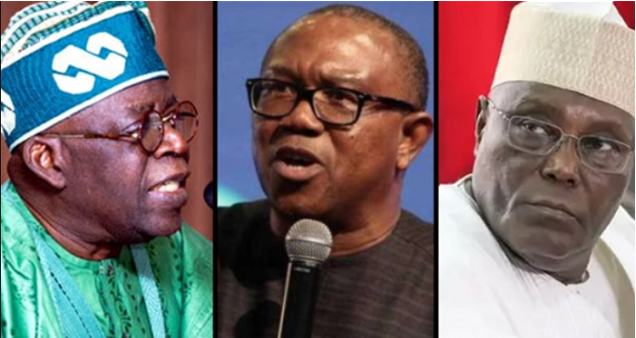A peep into the 2023 Presidential Election Campaign Promises can be accessed below.
According to a news report, two of the main contenders in Nigeria’s next presidential election, Peter Obi of the Labour Party and Atiku Abubakar of the People’s Democratic Party (PDP), have aired their views on how to solve the country’s electricity problem. Peter Obi has promised that Nigeria will be able to generate, transmit and distribute 15,000MW of electricity within a four-year period, taking a cue from Egypt.
2023 Election: Aregbesola, Supporters Working Against Tinubu- APC
According to him, following his visit to the power plants in Egypt, the power holding company of Egypt, the financiers of the Egyptian power project and after a meeting with the CEO of the companies that executed the projects, he is convinced that the strides made in the Egyptian power sector can be replicated in Nigeria.
On the other hand, Alhaji Atiku Abubakar said his first step in solving the country’s perennial power problems will be to pull together a consortium of private sector institutions to establish a US$20bn Infrastructure debt fund for the financing and delivery of large infrastructure projects.
He added that due to the priority that he places on the power sector, upon which the successes of other sectors are hinged, his plans will include the facilitation of a review of the financial, legal, and regulatory environment to promote private investment in power, among other sectors. His plans include the use of tax breaks as an incentive to attract private sector credit. While we await the strategies of other presidential aspirants, we note that campaign promises have hitherto remained mere political rambles that are many times never fulfilled.
According to the Nigerian Electricity System Operator, total power generation in the country stood at 3,920.8MW as of Monday, with a generation capacity of 7,652.6MW and transmission wheeling capacity of 8,100MW. Since the conclusion of the privatization process that took place in 2013, Discos have remained the weakest link in the electricity value chain, as they have been grappling with enormous operational challenges.
The most obvious has been the perennial issue of the absence of cost-reflective tariffs, a condition that has hindered their ability in fulfilling their financial obligations to the Nigeria Bulk Electricity Trading (NBET) company, leading NBET to default in its contractual obligation to the Generating Companies (Gencos).
The overall impact is that the power sector has continually suffered a cash crunch, forcing the government to inject funds to avert a total collapse. Despite a series of government interventions, the problems in the power sector prevail. That said, the challenges in the nation’s power sector run across the entire value chain. From gas challenges faced by Gencos to the incessant collapse of the power grid, no segment of the power sector value chain is spared.
While we realize the absolute importance of cash flow in the sector, we believe the power sector requires much more to be able to attract the needed investments. We believe the current ownership structure will need to be changed, which will involve a lot of legal tussles. In 2019, there were reports of plans by the government to repossess 10 electricity distribution firms as one of the options to rescue the nation’s troubled electricity industry.
This was expected to cost US$2.4bn. The core investors paid over US$1.3bn for 60% equity in each of the 11
Discos. We believe the advent of covid-19 and the fiscal challenges that came with it stalled such plans.
CSL Stockbrokers Limited, Lagos (CSLS) is a wholly owned subsidiary of FCMB Group Plc and is regulated by the Securities and Exchange Commission, Nigeria. CSLS is a member of the Nigerian Stock Exchange.














